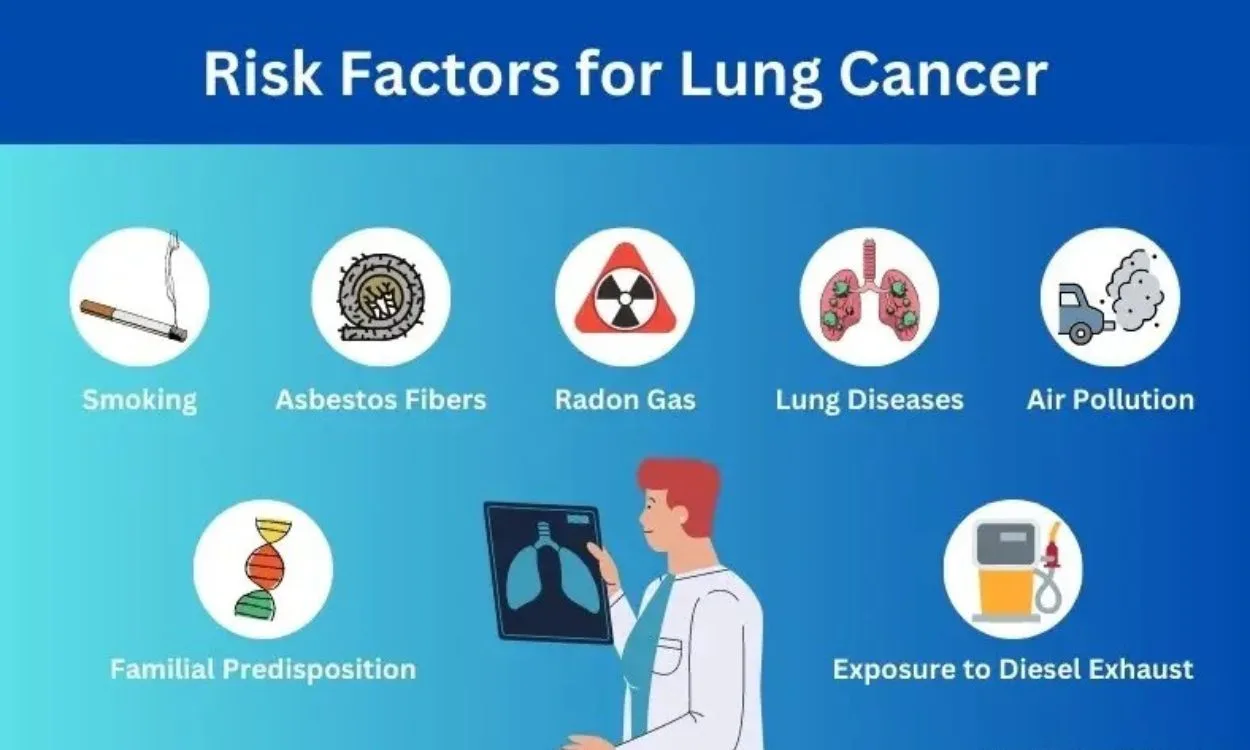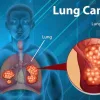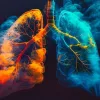What are the Risk Factors for Developing Lung Cancer?
Lung cancer is one of the most common types of cancer, and it is important to understand the risk factors associated with its development. By identifying and addressing these risk factors, individuals can take proactive steps to reduce their chances of developing lung cancer. In this article, we will discuss the various risk factors for lung cancer and provide useful information to help readers understand the importance of lung cancer prevention.
- Smoking: Cigarette smoking is the leading cause of lung cancer. It is estimated that about 80% of lung cancer cases are directly related to smoking. Tobacco smoke contains numerous carcinogens that damage the cells in the lungs, leading to the development of cancerous tumors. Both active smoking (smoking cigarettes directly) and passive smoking (inhaling secondhand smoke) increase the risk of lung cancer.
- Exposure to Radon Gas: Radon is a naturally occurring radioactive gas that can be found in homes and buildings. Prolonged exposure to high levels of radon gas can increase the risk of lung cancer, especially in individuals who also smoke. Radon gas can seep into homes through cracks in the foundation, floors, and walls. Testing for radon and taking measures to reduce its concentration is crucial for lung cancer prevention.
- Occupational Exposure: Certain occupations expose individuals to carcinogens and substances that increase the risk of lung cancer. For example, workers in industries such as mining, asbestos manufacturing, construction, and certain chemical manufacturing are at higher risk due to exposure to asbestos, silica, diesel exhaust, and other harmful substances. It is important for individuals working in such environments to take appropriate safety precautions and follow recommended guidelines to minimize exposure.
- Family History: Individuals with a family history of lung cancer may have an increased risk of developing the disease. Genetic factors can play a role in the development of lung cancer, and individuals with close relatives (such as parents or siblings) who have had lung cancer should be vigilant about monitoring their own health and discussing screening options with their healthcare providers.
- Air Pollution: Exposure to air pollution, both indoor and outdoor, can contribute to the development of lung cancer. Fine particulate matter, industrial emissions, vehicle exhaust, and other pollutants can be inhaled and deposited in the lungs, causing damage to lung tissue over time. Individuals living in areas with high levels of air pollution should take measures to minimize exposure and improve indoor air quality.
- Age: The risk of developing lung cancer increases with age. Most cases of lung cancer are diagnosed in individuals over the age of 65. However, it is important to note that lung cancer can occur at any age, and individuals of all age groups should be aware of the risk factors and take appropriate preventive measures.
- Personal History of Lung Disease: Individuals with a history of lung diseases such as chronic obstructive pulmonary disease (COPD), tuberculosis, or previous lung cancer are at higher risk of developing lung cancer. These conditions can damage the lungs and make them more susceptible to the development of cancerous cells.
- Certain Genetic Mutations: Certain genetic mutations, such as mutations in the EGFR (epidermal growth factor receptor) gene, are associated with an increased risk of developing lung cancer. Genetic testing can help identify individuals who may be at higher risk due to specific gene mutations.
It is important to note that while these risk factors increase the chances of developing lung cancer, they do not guarantee the development of the disease. Many individuals who develop lung cancer may not have any known risk factors, while others with multiple risk factors may never develop the disease. However, by understanding and addressing these risk factors, individuals can significantly reduce their chances of developing lung cancer and improve their overall lung health.
Now that we have discussed the risk factors for lung cancer, it is crucial to take proactive steps to protect our lungs and overall health. Fitpaa, an AI-driven health and fitness app, can provide personalized guidance and support in achieving your health and fitness goals, including lung health. With Fitpaa, you can access a team of experts, including fitness coaches, nutritionists, and doctors, who can help you optimize your health and reduce the risk of developing lung cancer.
Fitpaa offers a 3-step approach to achieving your health and fitness goals:
- Metabolism Assessment: Assess your current metabolism to identify the root cause of your health condition. Optimizing your metabolism is crucial for achieving your health and fitness goals.
- Fitpaa Capsule: Receive personalized guidance from our expert team based on your metabolism, health goals, lifestyle, and eating habits. The Fitpaa Capsule combines medical therapy, exercise therapy, nutrition therapy, and cognitive behavior therapy to help you achieve your health and fitness goals with a 100% guarantee.
- Daily Guidance and Monitoring: Follow your Fitpaa Capsule daily with the help of Fitpaa’s real-time guidance technology. The Fitpaa app provides tools like a virtual workout trainer, diet tracker, performance tracking, and progress tracking to make following your health and fitness plan easy and effective.
By combining the knowledge and support provided in this article with the personalized guidance offered by Fitpaa, you can take control of your lung health and overall well-being. Download the Fitpaa app today to start your journey towards a healthier life. Your well-being is our mission, and we are here to help you achieve your health and fitness goals with guaranteed results.
Take the first step towards a healthier life with Fitpaa and experience the joy of achieving your health and fitness goals. Remember, nothing is impossible when you have the right guidance and support.









